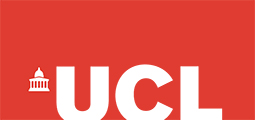Like everyone around the world, the Hatter Cardiovascular Institute (HCI) at UCL is navigating how best to work and stay engaged during the COVID-19 pandemic. Though having to close our laboratories & clinical areas temporarily, and now working remotely, we have established bi-weekly team meetings to continue our research programmes…and importantly to keep in touch with one another while apart! The team has been great discovering new ways to work to continue collaborations and on-going educational programmes.
The Clinical Fellows, Nurses, and Cardiologists at the HCI have all been released from their research programmes to contribute their skills to the immense clinical needs of the NHS at this difficult time. We cannot thank them enough for their dedication and sacrifice in helping to look after the health of the nation.
Despite not being physically together, the team at the HCI are still active in their research pursuits and we hope to be back in our labs continuing our work as soon as possible.


